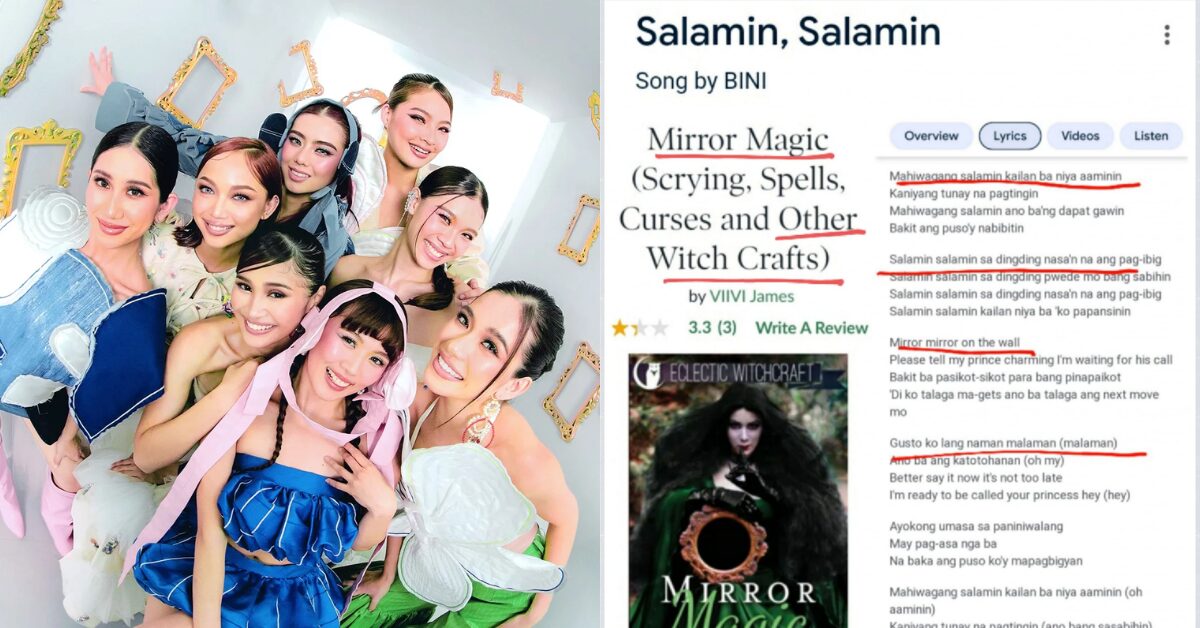
P-pop queens BINI addressed the controversy surrounding their hit song “Salamin, Salamin,” which some have labeled a “witchcraft song.”
The accusation began from a theory posted by a religious group identified as Fellow Jesus Ministry, which criticized the use of the song in a church setting.
According to the group, listening to such “worldly music” can lead people away from “spiritual and moral values” and influence the listeners’ thoughts and behavior negatively.
“Maari nitong maimpluwensyahan ang ating mga pagiisip at paguugali, protektahan po natin ang ating mga puso at isipan mula sa mga walang kabuluhang salita dahil ang mga salita ay espiritu. Maari ding ilayo nito ang ating mga puso mula sa Panginoon,” the post read.
The group also reminded people about the importance of choosing music that nurtures the soul and brings one closer to God.
“[Salamin, Salamin] is a witchcraft song.. Please wake up church!” they warned further .
In a recent press conference where BINI was recently unveiled as the newest faces of a popular local online shopping platform, the girl group discussed their reaction to these claims.
The members emphasized that their song is simply a piece of music meant to be enjoyed, not associated with any form of witchcraft or supernatural activity.
“Actually, ’di na po kasi kami nakaka-open ng social media po dahil sobrang busy po. Ngayon lang po namin nalaman din po ’yan. Well, hindi na natin maco-control din po kasi ’yung utak ng ibang tao po,” said BINI’s leader Jhoanna when asked about the accusations.
BINI member Colet also shared her thoughts, saying, ““Actually, nakita ko po ’yun, ’yung post na ’yun. Pero nakakatawa po, hindi pa po ’yun, meron pa pong mas nakakatawa.”
“Natatawa na lang po kami na may mga ganun na pong nabubuong kwento na theory theory po ’yung mga tao,” she added.
BINI’s viral member, Maloi was also clear in her statement, dismissing the claims as “fake.”
“Fake news po ’yun. Hindi po witchcraft ang ‘Salamin, Salamin.’ Maganda lang ’yung song,” she said.